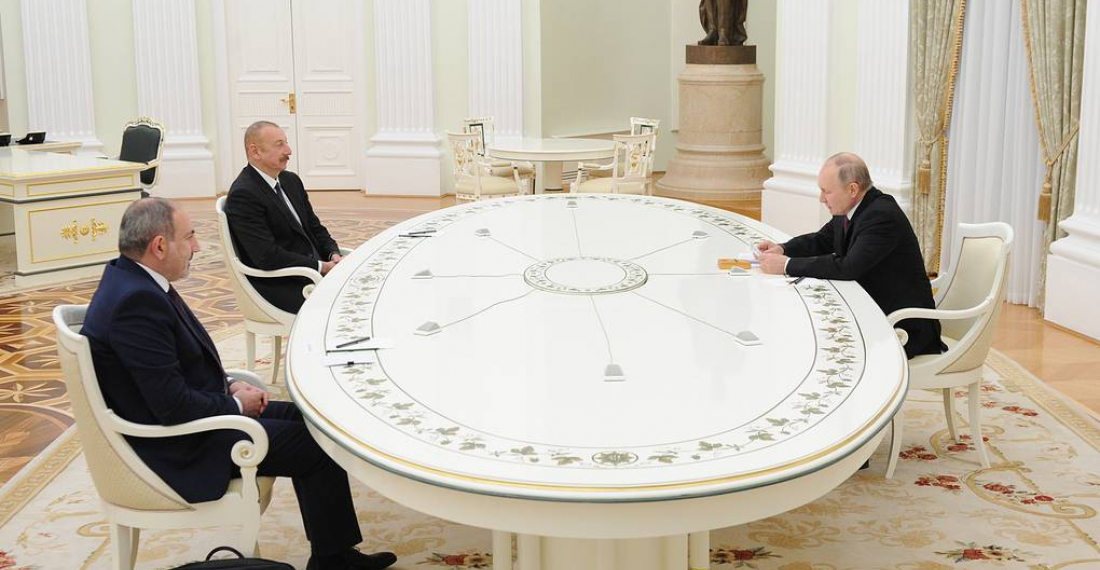Russian media has given plenty of coverage to the meeting in the Kremlin on Monday (11 January) between the president of Azerbaijan and the prime minister of Armenia under the auspices of the president of Russia. The four hour meeting appeared to have been successful and the three sides signed a document agreeing some next steps for the implementation of the 10 November trilateral agreement which halted the Karabakh war and opened a new chapter in relations in the South Caucasus.
There appears however to be considerable scepticism about the longevity of the truce established by the 10 November declaration. The newspaper Izvestya asked Russian experts on the Caucasus to comment, and it says that they believe that the threat of resumed hostilities has not completely vanished, "since radical elements on both sides and the position of Turkey can play a destructive role".
A new working group led by the vice-premiers of Azerbaijan, Armenia, and Russia will meet by the end of the month and will form a list of key areas for work on Nagorno-Karabakh, including plans for the development of transport infrastructure and the region's economy. This was noted in the statement on the development of the situation, signed in Moscow on January 11. Following the recent negotiations in the Kremlin, Russian President Vladimir Putin positively assessed the resolution of the conflict, since it was possible to prevent any further escalation.
Experts interviewed by Izvestia believe that the threat of resumed hostilities has not completely vanished, since radical elements on both sides and the position of Turkey can play a destructive role, and among those holding this view is political analyst Azhdar Kurtov.
He noted that first and foremost, the political situation in Armenia is very unstable, it does not offer any reason to believe that the agreements would be unconditionally implemented. In addition, the situation in the region may worsen once the question of the status of Nagorno-Karabakh is raised, he added. Now this topic remains on the back burner due to the urgent need to resolve more important issues.
"If the problem cannot be sorted out through diplomacy, then a resumption of hostilities is possible," Kurtov noted.
Another thing to keep in mind is the role of Turkey, which is interested in boosting its own influence in the region. "Ankara has already pushed Azerbaijan to more decisively aggressive actions against Armenia. In the future, this is not just possible, but it should be expected," the expert summed up.
The current truce in Karabakh is very fragile and any careless moves can destroy it, Director of the Institute for Peacekeeping Initiatives and Conflictology Denis Denisov noted. The fact that many residents of Armenia still perceive the trilateral agreement of November 9 as a defeat is a problem, he believes.
"It is necessary to present specific positions with a strategic vision in an accessible form so that radical elements do not come to power in Armenia and the conflict does not arise with renewed vigor," Denisov added.







